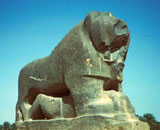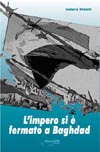July 13, 2010
The British government’s decision to withdraw troops from Sangin in Helmand province marks a watershed in the relentless conflict in Afghanistan. The military mission has been very costly for the United Kingdom, with a third of the total casualties sustained in one district alone. More than a hundred lives of soldiers lost and many more wounded coming home is a sign of how difficult the mission has been. In a classic display of guerrilla tactics of asymmetrical warfare, the armed opposition has refused to fight a modern army equipped with high-tech weaponry on its enemy’s terms. Instead, the insurgents have fought on their terms, using rudimentary explosive devices and small weapons with devastating effect. Reaction of Afghans in Sangin will shock many in Britain.
Writing in the Daily Telegraph (July 7, 2010), Ben Farmer reported local residents saying little that is complimentary about the British. One resident openly complained that, in their four-year deployment in Sangin, the British brought only fighting and too little development. The previous Anglo-Afghan wars have left a particularly bitter legacy, although there is also a tendency that things look far better on the other side. Afghanistan remains a fragmented country like it has been for centuries. Rubbing salt in British wounds, an Afghan from a small neighboring settlement said that areas under American control had done better. Ask people in US-controlled areas and their reaction would likely be the opposite. Afghans regularly protest against civilian deaths at the hands of US-led occupation forces all over the country, although many die in suicide attacks directed against people supposed to be cooperating with NATO and the US-installed government in Kabul. Among the latest this month were anti-US and anti-government demonstrations in the northern city of Mazar-i-Sharif. Residents come out to protest against civilians killings in the south and the east. News travels fast in that devastated country.
'Afghanistan: Now It’s America’s War,’ said the Independent newspaper’s front-page story loudly in black. For eight years, the British people’s growing unease had been ignored. The United Kingdom, with a population of 62 million and fewer than 200000 regulars (and 42000 volunteers) in the armed forces, had been punching way above its weight. Former prime minister Tony Blair’s personal kinship with George W Bush in his 'war on terror’ cost the United Kingdom dearly, in economic, political, moral terms. With Blair’s New Labour losing the May 2010 general election, it was relatively easier for the emerging Conservative-Liberal Democrat coalition government to face up to the reality of the Afghan conflict. The inevitable was bound to happen.
There has been a distinct cooling in the relationship between London and Washington since President Obama’s inauguration. Partly it is because President Bush and Prime Minister Blair are no longer in power. But equally significant, Britain’s new prime minister, David Cameron, and Obama have not made a good start. The Conservative Party is generally pro-military and, in opposition in parliament, voted for war against Afghanistan in 2001 and Iraq in 2003. The Liberal Democratic Party, with a much more democratic structure, has significant sections in its membership opposed to, or circumspect about, war. The overall effect of a coalition between the two parties now runs counter to Britain’s continuing involvement in the Afghan conflict that has taken a heavy toll. The rhetoric about continued military involvement in Afghanistan is gloomy. Official statements emphasize the need for British troops to come home as soon as Afghanistan is 'stable’. What it means remains undefined. The timescale often mentioned is 3-4 years, meaning before the next election.
Initial encounters have a determining effect on relations between leaders. From this perspective, Obama and Cameron did not appear to connect well. Of course, diplomatic niceties were maintained. The British are particularly adept at that. But the difference of emphasis in Washington and London over Afghanistan cannot be hidden. And the megaphone diplomacy over the BP oil spill laid bare the reality that the days of 'special relationship’ – an exaggerated claim – were decidedly over. President Obama did not hesitate to resort to raw nationalism undermining that 'special relationship’ to deflect domestic criticism of his handling of the environmental disaster in the Gulf of Mexico.
In doing so, Obama stepped back a decade into the past before British Petroleum and Amoco merged to form an international oil giant that was regarded as much American as it was British until the accident. He resorted to new rhetoric, way below his previous standards, to speak of an assault on US shores (not true because the rig that broke down was extracting oil within US continental waters). The Deepwater Horizon drilling rig leased by BP was owned by Transocean, a company that traces its origins to Alabama in the 1950s. With its headquarters now based in Switzerland and offices in the United States and other countries, Transocean quenches the business ethos of 'drill baby drill’ very well. And Obama’s 'kicking ass’ remark was not the sort of political language heard in Europe. Senior figures, including ex-diplomats and politicians, began to react publicly, calling for the need to 'send a message’ to the Americans. A telephone call from the British prime minister David Cameron followed. The conversation was courteous, the message clear. The oil disaster was saddening and frustrating. But it would be in no one’s interest to crush BP and to let the temperature rise any further. Obama responded that he had no interest in undermining the value of BP, but that was precisely the result. Obama was accused of holding 'his boot on the throat’ of pensioners whose incomes depended on investments in the company.
Expediency, always a strong motive, propels political leaders to do the unexpected. They are not averse to injecting political venom into the body of an ally when they want to deflect domestic criticism. Eight years on, the 'coalition of the willing’ President George W Bush assembled following his infamous threat 'you’re either with us, or against us’ to invade Afghanistan and then Iraq, that alliance is unraveling. And we may be witnessing the beginning of the end of yet another phase of great power adventurism in Afghanistan.
Deepak Tripathi set up the BBC Bureau in Afghanistan in the early 1990s and was the resident correspondent in Kabul. His latest book Overcoming the Bush Legacy in Iraq and Afghanistan is available from Amazon.com. His next book Breeding Ground: Afghanistan and the Origins of Islamist Terrorism (Potomac Books, Inc), an inside account of the Afghan conflict and great power intervention in the country since the 1970s, is to be published in August 2010. He can be reached at: DandATripathi@gmail.com.
|
















